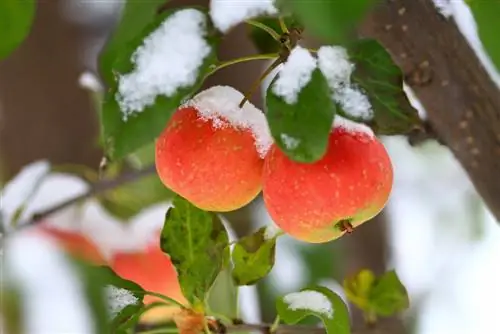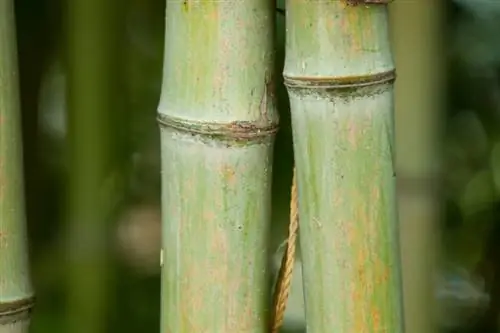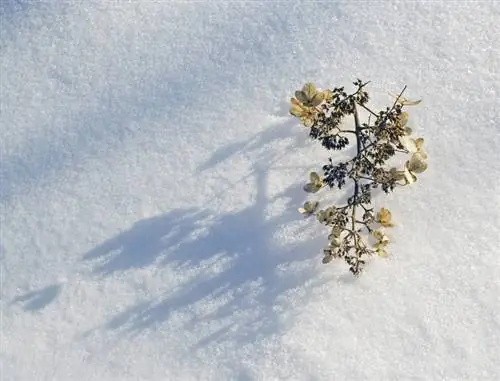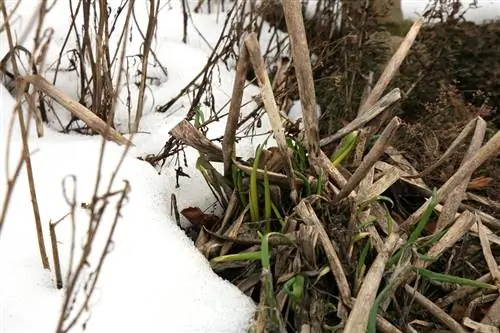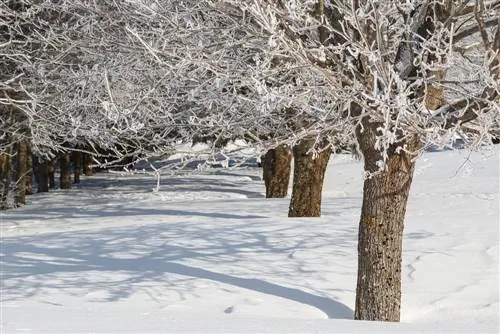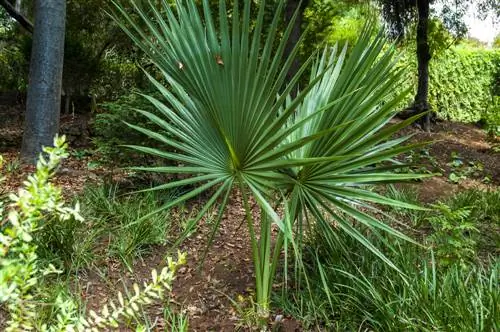- Author admin leonars@hobbygardeners.com.
- Public 2023-12-16 16:46.
- Last modified 2025-01-23 11:21.
Most types of fruit are now also available from specialist retailers as columnar fruit, which offers a relatively high yield with a relatively small space requirement. Whether these plants need special protection from the winter cold depends not least on the respective location.
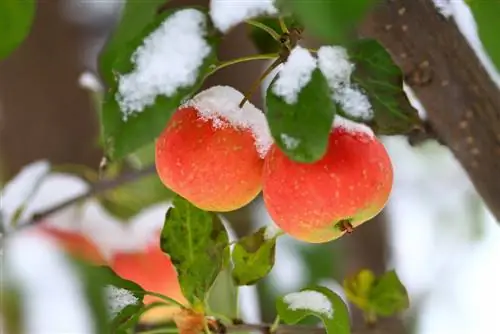
Is columnar fruit hardy and how do I protect it in winter?
Pillar fruit is hardy when planted out, but potted plants need some protection from the cold, such as wrapping the pot with fleece (€49.00 at Amazon) or bamboo mats and a location protected from the wind. Young plant trunks should also be wrapped with fleece.
Planted columnar fruit overwinter successfully
Planted columnar fruit varieties are generally no more or less hardy than the fruit varieties from which they were bred. However, you should note that the grafting point for fruit trees must always be above the surface of the soil, otherwise it could become rotten. In addition, a plant stake or attachment to a trellis doesn't hurt to protect the plants from wind or snow damage. Very young plants should sometimes be wrapped around the trunk with a fleece so that the winter weather does not cause cracks in the trunk bark.
The right winter protection for potted plants
Unfortunately, columnar fruit trees grown in planters are not quite as insensitive to the winter cold as planted specimens. With these measures you can usually get your columnar fruit through the winter well:
- Choose planters large enough
- Wrap plant pots with fleece (€49.00 on Amazon) or bamboo mats
- Create some distance from the floor with a Styrofoam base
- Place the plant pot preferably in a wind-protected location under a roof overhang
- Cover the root area with a disc of coconut fiber
- Avoid waterlogging in the plant pot
- Sensitive varieties in particularly cold locations can be frost-free in a bright room over the winter
Tip
Fruit trees, like many other plants, should not be protected from the winter cold with their leaves in winter, as overwintering pests, fungal spores and pathogens can otherwise increase the infestation pressure enormously.

